8 Reasons to Use a Genealogy Research Log
00:02
Hello, I'm Robin Foster and today I'm going to give you eight reasons to use a Genealogy Research Log.
00:15
Genealogy research can be complex and time consuming, making the use of a research log an essential tool for both amateur and professional genealogists. Why using genealogy research log the matter? A genealogy research log is an essential tool for anyone delving into family history.
00:44
and it can significantly enhance the organization of findings and prevent duplicate searches. Here are eight specific examples of how a research log can achieve these benefits.
Number 1
01:03
Number 1, Tracking Searches A research log allows you to record what you're looking for and where you have searched, providing a clear history of your efforts. By listing sources you've explored, you can easily see which records have already been reviewed, thus avoiding unnecessary duplication of searches.
Number 2

01:32
Number two, documenting findings. As you search various sources, a research log helps you note what information was found, if any, in each record. This means that when you revisit a source, you can quickly determine whether it will likely yield new insights or if it has already been exhausted.
Number 3
02:03
Number three, highlighting research gaps. By maintaining detailed entries in your log, you can identify gaps in your research. This enables you to focus future efforts on areas that need further exploration rather than retracing steps unnecessarily.
Number 4
02:28
4. Facilitating future sessions. A well-kept research log allows you to pick up where you left off in your investigation. You can easily refer back to previous entries to continue your research without losing momentum, thus streamlining the process.
Number 5
"South Carolina Deaths, 1915-1973", FamilySearch (https://www.familysearch.org/ark:/61903/1:1:FPM7-CX8 : Mon May 06 19:11:33 UTC 2024), Entry for Layfayette F. Vance and Beverly Vance, 1952.
02:55
Number five, creating source citations. Recording source citations in your research log is crucial for future reference and for writing up your conclusions. A detailed log becomes the foundation for accurate citations, ensuring that you do not misattribute information.
Number 6
03:21
Number 6, Avoiding Information Overlap When working with extensive geological records, is common to encounter overlapping information. A research log helps you track which details have been confirmed, allowing you to avoid the mistake of mistreating the same information as due evidence.
Number 7
or
03:50
Number seven, organizing digital and physical records. By using a structured research log, whether digital or handwritten, you can better manage and organize your genealogy documents. This organization makes it easier to search, analyze, and display findings, leading to more effective research strategies.
Number 8
Let’s find the 1880 US Census.
04:21
Number 8, documenting next steps. A research log prompts you to write down your next steps after each session.
04:37
Thank you for listening. I'm Robin Foster and you can follow me under Genealogy Just Ask at Substack. If you don't have your own Genealogy Research Log, then download it below. Check out my book!


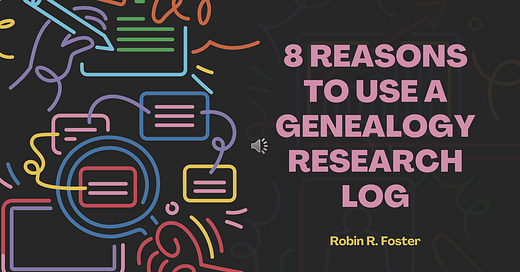





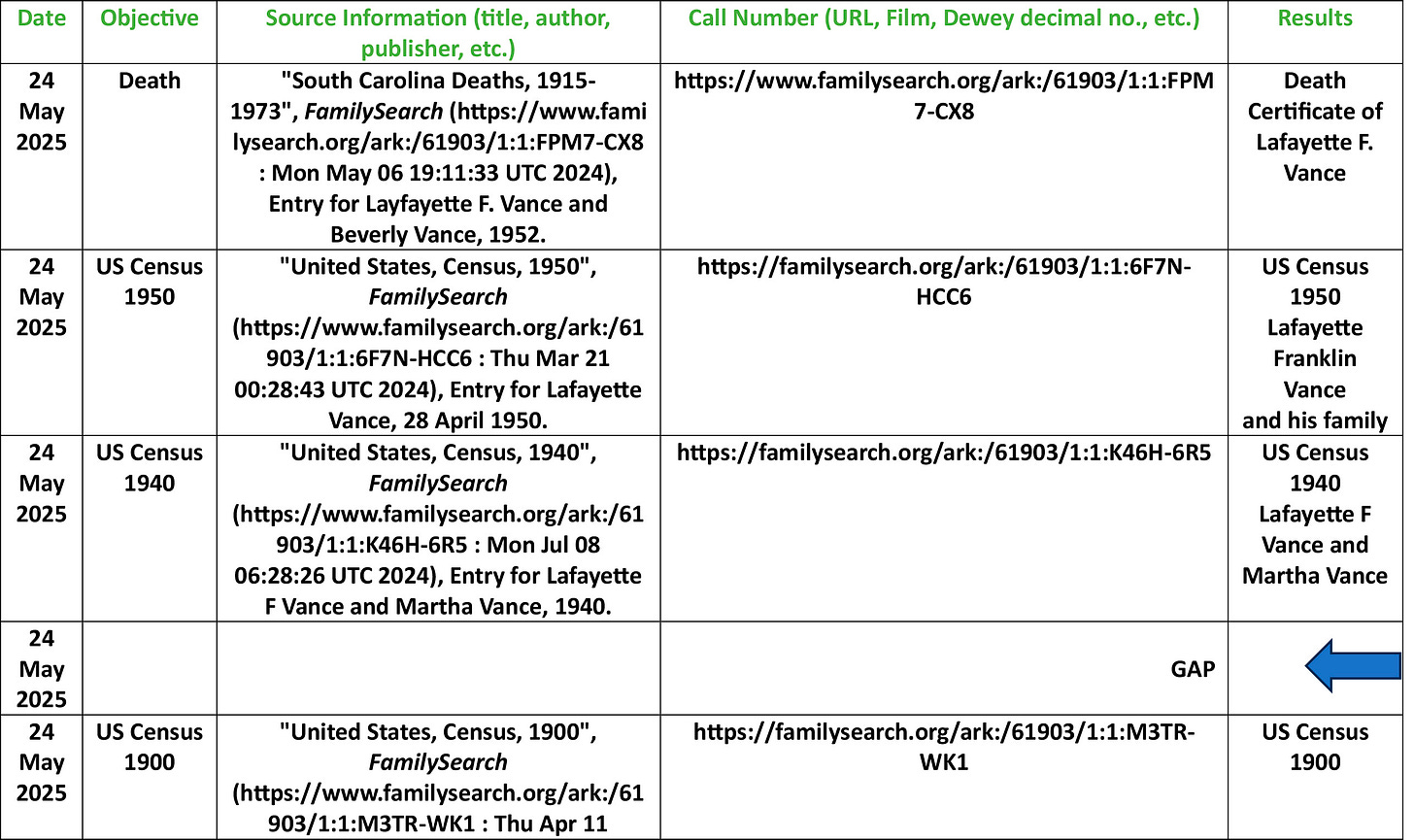
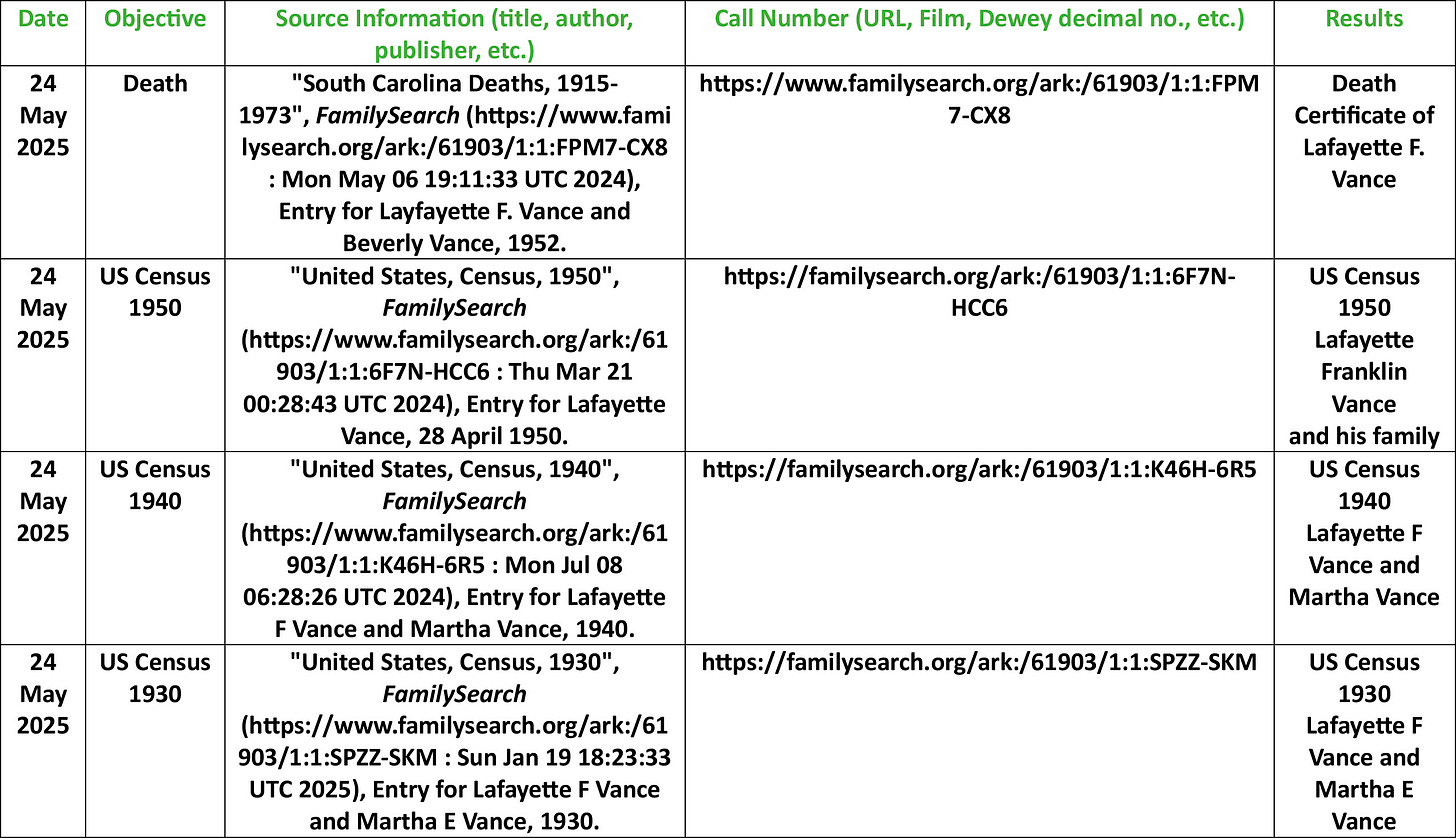

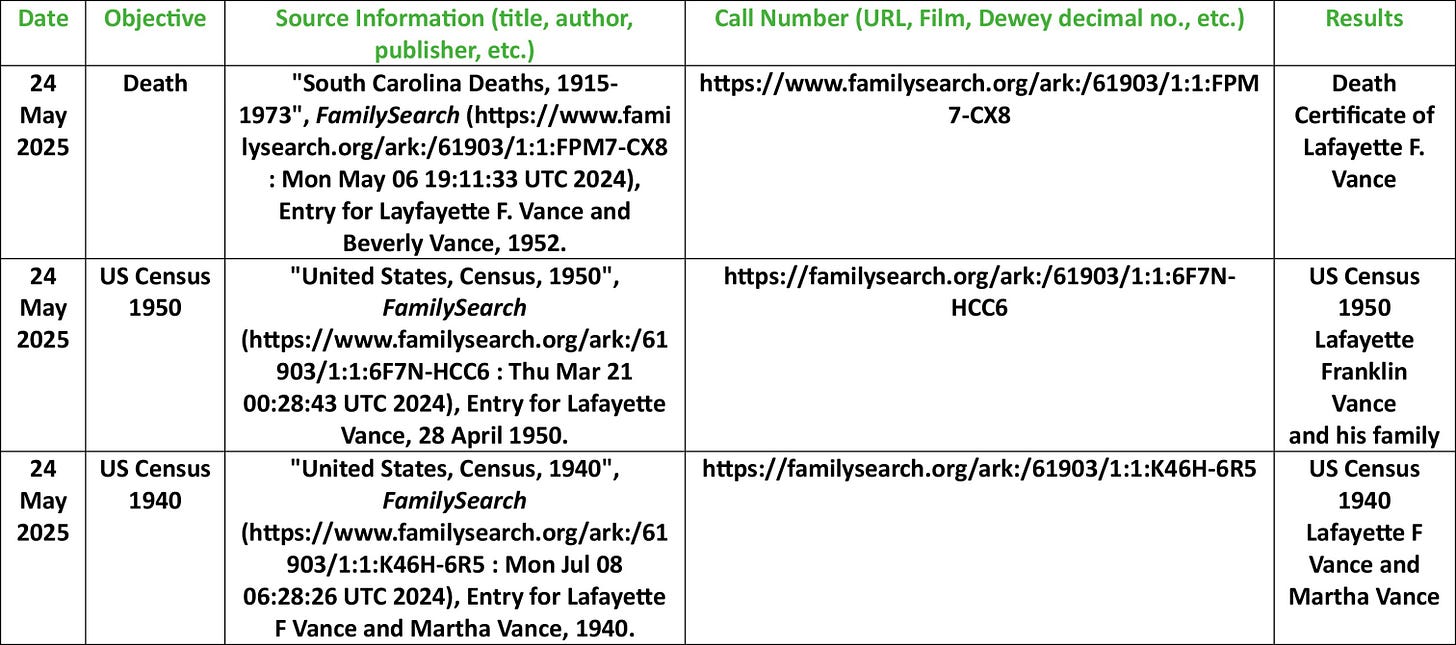

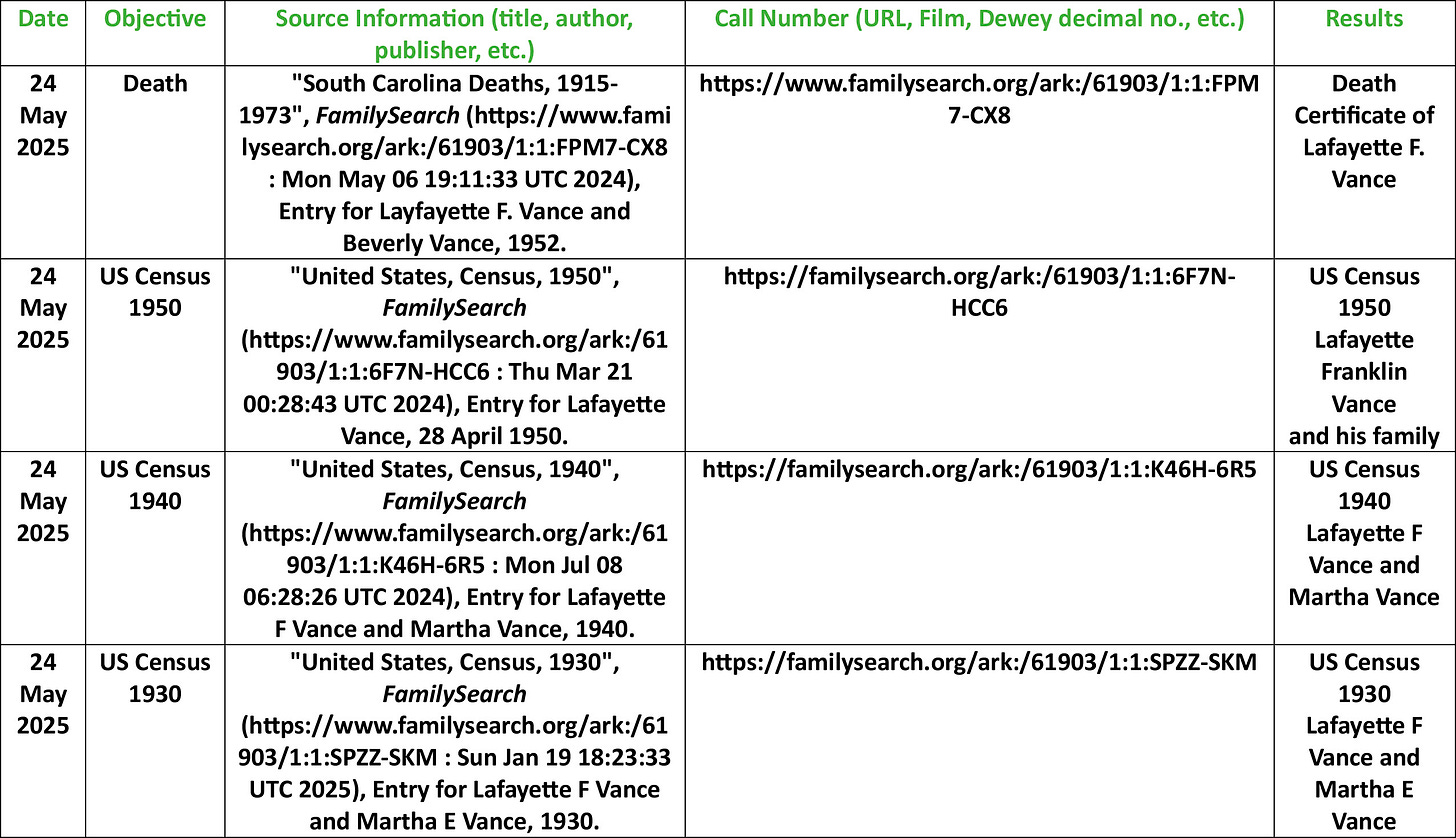



Share this post